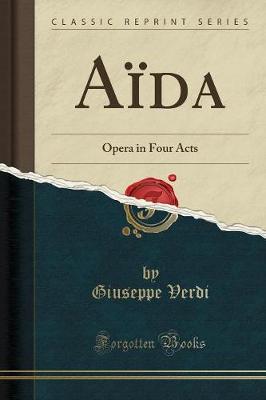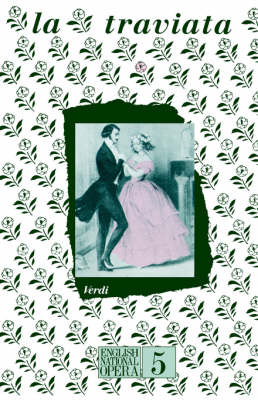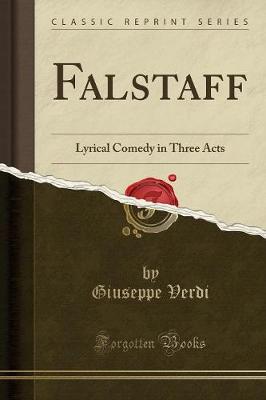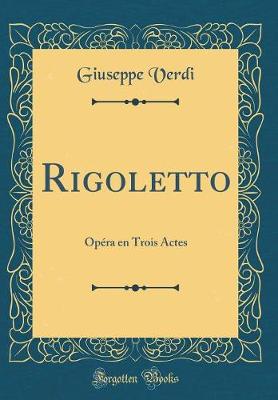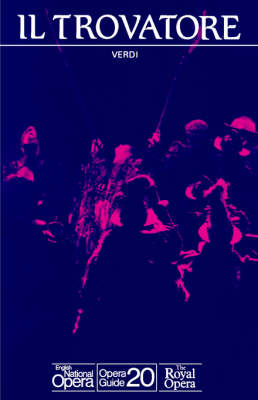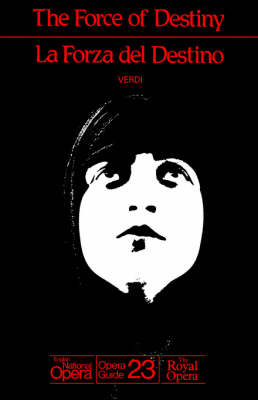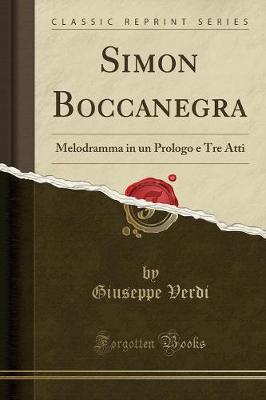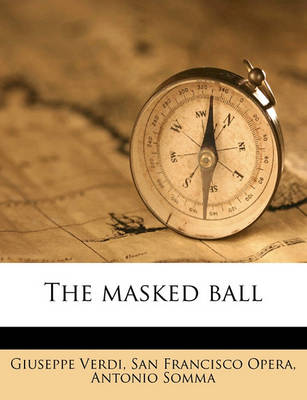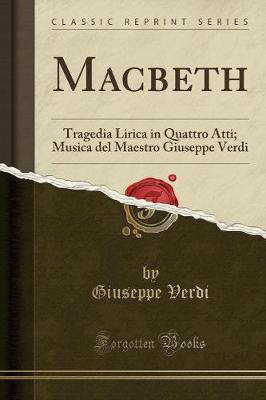English National Opera Guide
10 primary works
Book 2
Book 5
Traviata, La
by Giuseppe Verdi, Francesco Maria Piave, Edmund Tracey, and Alexandre Dumas
Book 10
Falstaff: Lyrical Comedy in Three Acts (Classic Reprint)
by Giuseppe Verdi
Contents: Introduction, Nicholas John; 'A Lyric Comedy Unlike Any Other', Michael Rose; 'Full of Nimble, Fiery and Delectable Shapes', David Cairns; Translating 'Falstaff', Andrew Porter; Falstaff: Libretto by Arrigo Boito; Falstaff: English Translation by Andrew Porter
Book 15
The guide contains articles on the place of Rigoletto in Verdi's oeuvre and the background to its composition, a detailed examination of its musical structure and a survey of its performance history including discussions of some of its most distinguished interpreters. A further article highlights aspects of the opera's particularly Italian character. The guide also includes the full Italian libretto with English translation, sixteen pages of illustrations, a musical thematic guide, a bibliography and discography, and DVD and website guides.
Contains:
The Making of Rigoletto, Jonathan Keates
The Music of Rigoletto, Roger Parker
A Selective Performance History, George Hall
Rigoletto: Libretto by Francesco Maria Piave after Victor Hugo's play Le Roi s'amuse
Rigoletto: English Translation by William Weaver
Book 20
Book 23
Force of Destiny
by Giuseppe Verdi, Francesco Maria Piave, Andrew Porter, and Angel De Saavedra Rivas
Book 32
Simon Boccanegra: Melodramma in un Prologo e Tre Atti (Classic Reprint)
by Giuseppe Verdi
This edition contains over twenty illustrations, a thematic guide and the texts of the libretti in the original with literal translations. There is also a bibilography, discography and DVD guide, together with a list of websites that will allow the reader to explore the opera further.
Contents: An Historical Perspective, Rodolfo Celletti; An Introduction to the 1881 Score, James Hepokoski; Verdi and his Singers, Desmond Shawe-Taylor; Simon Boccanegra: Libretto by Francesco Maria Piave with additions by Giuseppe Montanelli and additions and alterations by Arrigo Boito; Simon Boccanegra: English translation by James Fenton
Book 40
Book 41
Published in three volumes, this critical edition of Macbeth is the only one based entirely on autograph sources. Containing the later version as the principal score, it is the first edition to consult the composer's manuscripts of the revised pieces, preserved at the Bibliotheque Nationale in Paris. An appendix contains the earlier movements, and David Lawton provides a wide-ranging introduction to the opera's complex history. This critical edition of Macbeth includes here for the first time Verdi's preferred text--the version he set to music--as well as his own stage directions and thus offers the most vivid and dramatic reading to date.
Book 46
Contents: A Grand Opera with a Difference, Julian Budden; Off the Beaten Track, Gilles de Van; "A Family Portrait in a Royal Household": 'Don Carlos' from Schiller to Verdi, F.J. Lamport; Stendhal's 'Don Carlos': "The most moving opera ever written", by Nicholas Cronk; Don Carlos: Grand Opera in Five Acts by Joseph Mery and Camille du Locle; Don Carlo: Italian translation by Achille de Lauzieres and Angelo Zanardini with additional material translated by Piero Faggioni; Don Carlos: English translation by Andrew Porter; Introduction by Jennifer Batchelor
